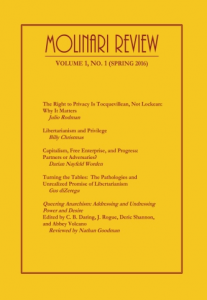Reclamatio Plebis
Campaign to reclaim plebes
as a term of praise rather than an insult.
Of course people use plebe
as an insult because our entire perspective on the ancient world is deeply deformed to favor the worldview of the ruling class and its pretensions to aristocracy, and hence we assume without much question the contempt that they constantly expressed for plebeians, and most of all for those plebeians who were self-conscious of their lower-class position and made it a basis for solidarity and disruptive action in the politics of the City.
But then, the fact is that like most “aristocracies,” the Patrician Order was little more than a worthless, parasitic, petulant band of thugs, extracting wealth from the rest of the population and from the imperial periphery. They looked down on the plebeians because plebeians worked for a living instead of beating a living out of slaves and endlessly crowing about the inviolable sacred honor of their system of military-extractive complex oligarchy and ludicrously rigged “elections.”[1]
Patricians were pretty awful. Plebeians did what they could to get along with this regime, but when it got too bad, they had a habit of declaring a general strike, lighting off into the hills and saying “Oh yeah? Well, we’ll make our own Rome, with blackjack, and hookers,” and waiting until the patricians got sick enough of carrying their own hods that they begged the plebes to come back. That’s pretty rad.
Shared Article from en.wikipedia.org
Secessio plebis - Wikipedia, the free encyclopedia
en.wikipedia.org
Disdain for patricians. To hell with those dudes. Up the plebes.
- [1]You could say, “Oh, the patrician order was morally very bad, but at least with their wealth they had culture, and refinement.” But this is actually an anachronistic view. If you look at the elite culture of the late Republic and the Empire, that had plenty of culture and learning in the midst of appalling cruelty, political sadism and moral callousness. But the ruling elite of the late Republic and the Empire were not mainly patricians; the political power (and most of the actual members) of the patrician order had mostly been wiped out in the last century of civil war. Cicero was a plebeian, Virgil was a plebeian, Ovid was a plebeian. If we go back to the older Republican Rome where the patrician order was a functioning political aristocracy, the great cultural achievements of Patrician Rome, as far as we know of them, basically consist of animal sacrifice, liturgical dance, usually involving some weird blood-play or little bundles of grain, the introduction of gladiatorial combat (around the time of the Punic Wars) and public killing of animals for entertainment, and a theater apparently consisting of a bunch of bad slapstick comedies translated or adapted or ripped off of Greek New Comedy plays. (Here, let me summarize 90% of Plautus for you: “Ha ha, look, there’s a slave, let’s beat him! Ha ha ha, that tricky slave, he dressed one character up so they’d look like another character, now everbody is confused!” This was **** comedy in the golden age of the Roman Republic.) Meanwhile elite figures like Cato the Censor spent their time denouncing modern conveniences, beating slaves, and actively trying to combat the spread of Greek learning and culture.↩


